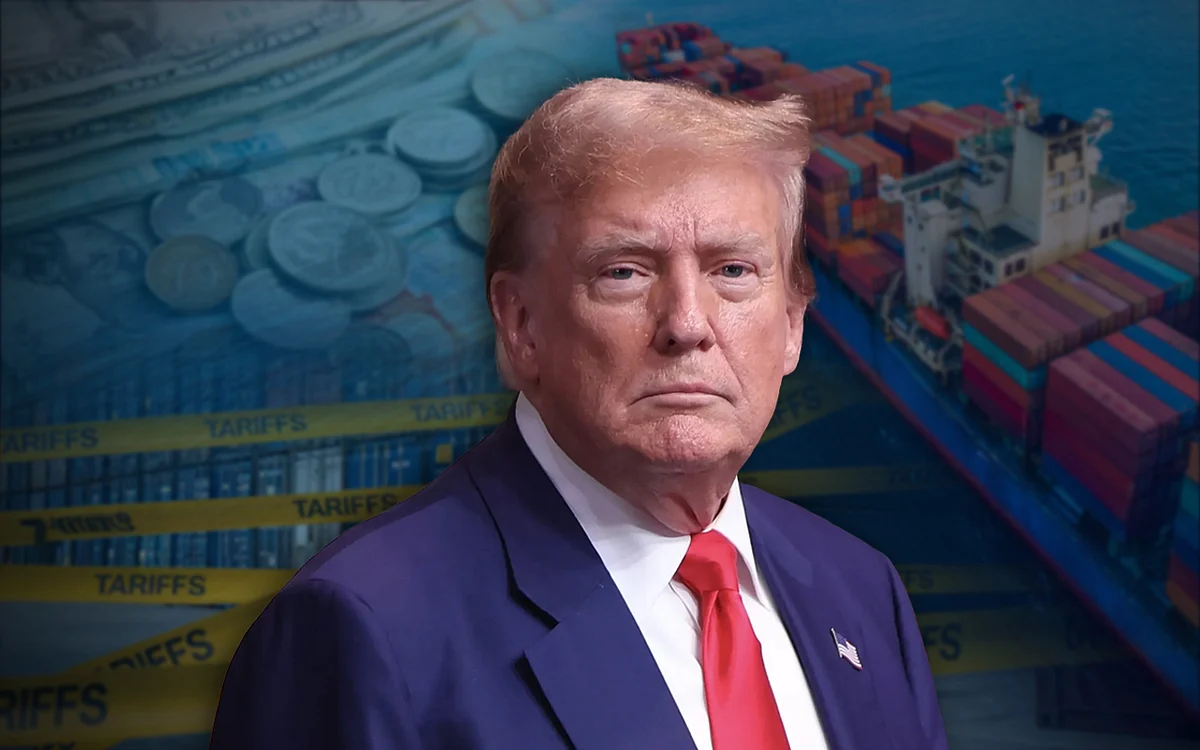Business
EU Proposes Elimination of Tariffs on US Goods, Trump Responds

The European Union (EU) has announced plans to eliminate tariffs on US industrial goods, responding to a demand from President Donald Trump. This proposal includes preferential treatment for certain US agricultural and seafood products, as well as an extension of duty-free treatment for American lobster. The EU’s approach aims to facilitate a reduction in US tariffs on European automobiles and auto parts from 27.5% to 15%, effective retroactively from August 1, 2024.
Ursula von der Leyen, President of the European Commission, emphasized the importance of this arrangement in providing businesses with stability and certainty. Describing the trade deal as a “strong, if not perfect deal,” she highlighted the benefits of fostering a more collaborative economic environment between the EU and the US. The proposed changes come on the heels of a political trade agreement struck last month, which has been viewed as a step towards reducing trade tensions.
While the EU’s proposal would significantly lower American tariffs on nearly all European products to 15%, President Trump has indicated that this reduction will not apply to automobiles until further legislative actions are taken to eliminate industrial duties. Automobiles represent one of the EU’s largest exports to the United States, with Germany alone exporting $34.9 billion worth of new cars and parts in 2024.
In an unusual move, the European Commission has decided to forgo the standard impact assessment typically conducted in such scenarios, aiming to expedite the proposal process. This decision reflects a sense of urgency to advance trade relations despite ongoing challenges.
The backdrop to these negotiations includes President Trump’s threats to impose tariffs on countries that tax online services, although he has not clarified which nations might be affected. His administration has previously expressed concerns over EU regulations impacting US tech giants such as Alphabet Inc. and Apple Inc., which have faced scrutiny under European antitrust laws.
The EU’s willingness to remove tariffs represents a significant shift in trade policy and could set the stage for deeper economic engagement between the two regions. As discussions progress, the outcome will likely have substantial implications for industries reliant on transatlantic trade.
-

 World5 months ago
World5 months agoSBI Announces QIP Floor Price at ₹811.05 Per Share
-

 Lifestyle5 months ago
Lifestyle5 months agoCept Unveils ₹3.1 Crore Urban Mobility Plan for Sustainable Growth
-

 Science4 months ago
Science4 months agoNew Blood Group Discovered in South Indian Woman at Rotary Centre
-

 World5 months ago
World5 months agoTorrential Rains Cause Flash Flooding in New York and New Jersey
-

 Top Stories5 months ago
Top Stories5 months agoKonkani Cultural Organisation to Host Pearl Jubilee in Abu Dhabi
-

 Sports4 months ago
Sports4 months agoBroad Advocates for Bowling Change Ahead of Final Test Against India
-

 Science5 months ago
Science5 months agoNothing Headphone 1 Review: A Bold Contender in Audio Design
-

 Top Stories5 months ago
Top Stories5 months agoAir India Crash Investigation Highlights Boeing Fuel Switch Concerns
-

 Business5 months ago
Business5 months agoIndian Stock Market Rebounds: Sensex and Nifty Rise After Four-Day Decline
-

 Sports4 months ago
Sports4 months agoCristian Totti Retires at 19: Pressure of Fame Takes Toll
-

 Politics5 months ago
Politics5 months agoAbandoned Doberman Finds New Home After Journey to Prague
-

 Top Stories5 months ago
Top Stories5 months agoPatna Bank Manager Abhishek Varun Found Dead in Well









